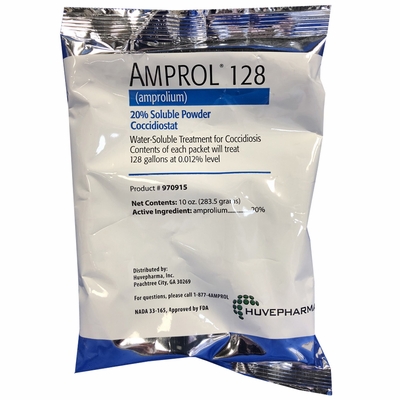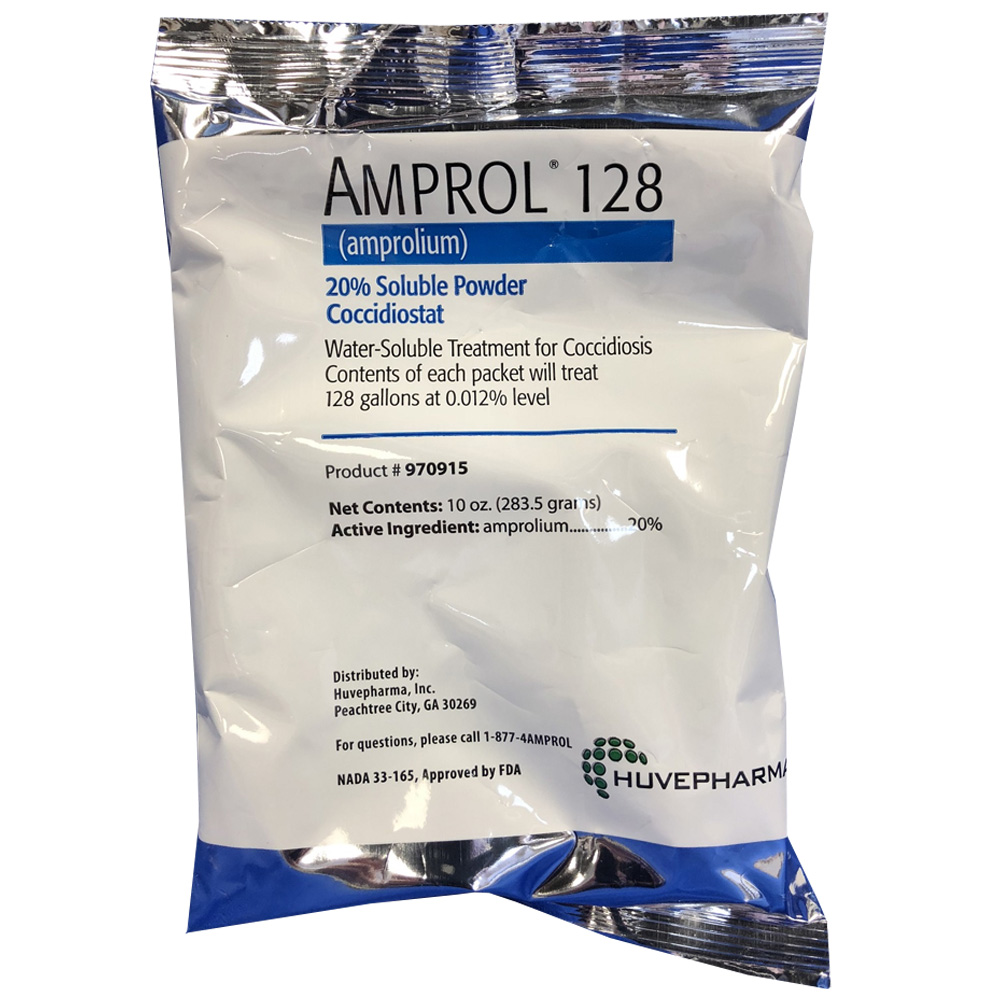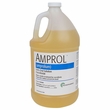Description
Amprol 128 is a potent and effective 20% soluble powder designed to combat poultry coccidiosis. Coccidiosis, a common intestinal disease in poultry, can impact the health and productivity of your flock. Our specially formulated Amprol 128 provides a reliable solution for both prevention and treatment, ensuring the well-being of your poultry.
Key Features:
- 20% AMPROLIUM CONCENTRATION: Amprol 128 boasts a concentrated 20% amprolium formulation, ensuring maximum effectiveness in addressing coccidiosis in poultry.
- PROVEN COCCIDIOSIS CONTROL: Trusted by poultry farmers, Amprol 128 is a proven solution for the prevention and treatment of coccidiosis, promoting healthier flocks.
- EASY SOLUBLE POWDER FORM: The soluble powder form makes it easy to administer, allowing for convenient mixing with drinking water, ensuring all birds receive the necessary dosage.
- TARGETED COCCIDIOSIS TREATMENT: Amprol 128 specifically targets Eimeria species, the causative agents of coccidiosis, helping to control and manage the disease effectively.
- PREVENTION OF COCCIDIOSIS OUTBREAKS: Regular use of Amprol 128 aids in preventing coccidiosis outbreaks, safeguarding the overall health and performance of your poultry.
- EFFICIENT WATER ADMINISTRATION: The soluble powder can be easily mixed with drinking water, allowing for efficient and stress-free administration to your flock.
- FOR BROILERS, LAYERS, AND BREEDERS: Suitable for use in broilers, layers, and breeders, Amprol 128 provides versatile coccidiosis management across different poultry categories.
Useful Information
- Prevention: Mix 1 teaspoon (5 grams) of Amprol 128 per gallon of drinking water for 5 consecutive days.
- Treatment: Mix 2 teaspoons (10 grams) of Amprol 128 per gallon of drinking water for 7-14 consecutive days, depending on the severity of coccidiosis.
Caution:
- Do not exceed the recommended dosage.
- Withdrawal period: 5 days before slaughter.
- Store in a cool, dry place, away from direct sunlight.
- Keep out of reach of children.
FAQ
Amprol 128 is a 20% soluble powder designed for the prevention and treatment of poultry coccidiosis. Coccidiosis is a common intestinal disease in poultry, and Amprol 128 serves as an effective solution to combat it.
Amprol 128 contains a concentrated 20% amprolium formulation, specifically targeting Eimeria species, the causative agents of coccidiosis. It helps control and manage the disease, promoting healthier poultry flocks.
Yes, Amprol 128 is versatile and can be used for both the prevention and treatment of coccidiosis in poultry. The recommended dosage and duration may vary for each purpose.
Amprol 128 is administered by mixing the soluble powder with drinking water. For prevention, mix 1 teaspoon (5 grams) per gallon for 5 consecutive days. For treatment, mix 2 teaspoons (10 grams) per gallon for 7-14 consecutive days, depending on the severity of coccidiosis.
Yes, Amprol 128 is suitable for use in broilers, layers, and breeders, providing versatile coccidiosis management across various poultry categories.
es, observe a withdrawal period of 5 days before slaughter when using Amprol 128. This ensures that any residual traces of the medication are cleared from the poultry.
Do not exceed the recommended dosage, and store Amprol 128 in a cool, dry place away from direct sunlight. Keep the product out of reach of children.
For prevention, administer Amprol 128 by mixing 1 teaspoon (5 grams) per gallon of drinking water for 5 consecutive days.
Consult with a veterinarian before combining Amprol 128 with other medications to ensure compatibility and effectiveness.
Check with your certifying agency, as regulations may vary. However, Amprol 128 is not typically considered suitable for organic poultry farming due to its synthetic nature.



